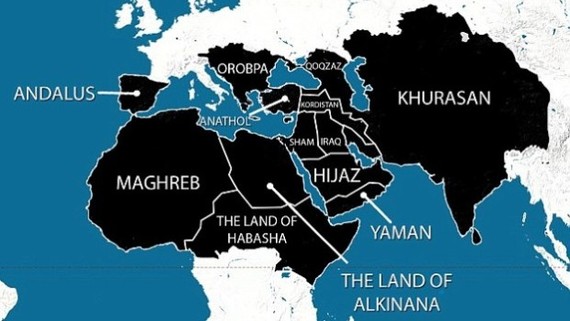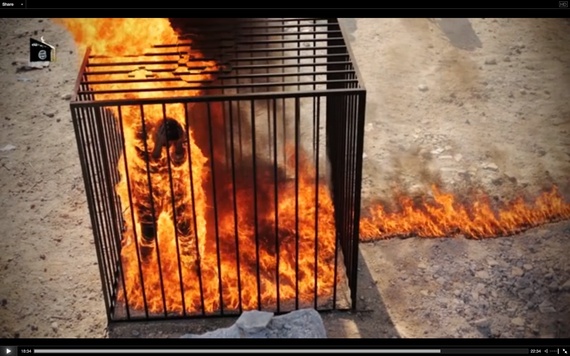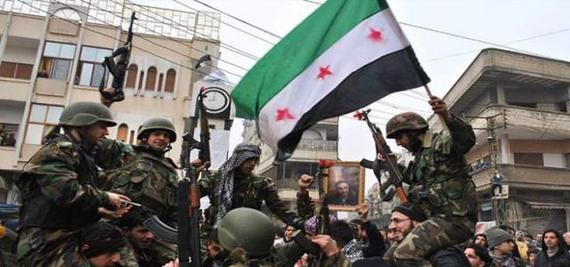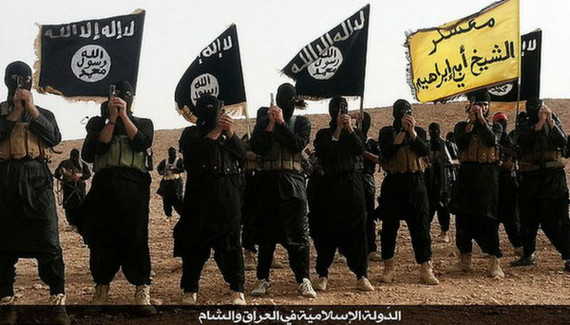June 29 marks the first anniversary of the proclamation of Islamic State (IS). It has been a busy year. After conquering an area covering over 80,000 square miles and including a population of approximately 10 million people, IS has gone on to create two dozen franchises around the world including a fledging organization in the United States that already boasts over 200 members. Its record of brutality and barbarism has reached even newer lows and has become the template adopted by its other namesake jihadist organizations around the globe. It has been responsible for the wanton destruction of priceless archeological sites while inflicting unprecedented misery on the inhabitants of its conquered territories; especially its non-Sunni inhabitants. Its singular preoccupation with inciting anti-Shia violence is inflaming a broader Sunni-Shia conflict around the world and is a theme being adopted by other militant jihadist organizations including its arch rival, al-Qaeda. It has been a very busy year indeed!
Although military operations against Islamic State militants did not begin until September 2014, it would be correct to say that we have been at war with Islamic State, as of June 29, 2015, for a year. The first anniversary of the Islamic State offers us an excellent opportunity to ask the question: how is America doing in fighting Islamic State? The record is mixed. Notwithstanding a never-ending stream of upbeat pronouncements from the White House, the fact is, a few notable victories notwithstanding, we are losing the war against the Islamic State. What was dismissed, only a year ago, as a short, simple military operation against the "JV team," is rapidly becoming the tip of a multi-year, multi-pronged global conflict that Washington seems incapable of understanding much less articulating a coherent, cohesive strategy with which to prosecute it.
The first step to successfully fighting a war is to clearly define what constitutes victory. In World War II, Churchill and Roosevelt were clear on what constituted victory: "complete and unconditional surrender." We were equally clear during the first Gulf War: the expulsion of Iraqi troops from Kuwait and the restoration of Kuwaiti sovereignty. We were never quite clear on what constituted "victory" in the Vietnam War. We were quick to announce "mission accomplished" in the second Gulf War, operation Iraqi Freedom, only to realize later we had never sorted out what exactly the "mission" was, much less determine what the criteria was for "accomplishing" it. Much the same can be said for the Afghanistan intervention, operation Enduring Freedom. Time will tell just how enduring Afghanistan's freedom will be.
To define what constitutes victory against the Islamic State we must first identify what exactly we are fighting. In the case of Islamic State there are four distinct aspects to the challenge posed by IS. There is Islamic State the country, IS the insurgency, IS the international Jihadist movement and finally Islamic State as an idea. Today we are at war with all four aspects of Islamic State. It is correct to say that in past conflicts we are at war as much with an enemy state as its ideology. We were at war with Nazism as much as we were with Nazi Germany. The same can be said of international communism and the Soviet Union. But Nazism could not survive the destruction of Nazi Germany. Likewise, with a handful of exceptions around the globe, international communism did not survive the collapse of the Soviet Union. Communism, in one hybrid form or another, still survives in the world, but even China has little interest in aggressively expanding its cause internationally. Islamic State is different, because the destruction of the country of Islamic State will not lead to the elimination of the other aspects of IS. In that sense, the United States is fighting four different aspects of Islamic State; clearly related but also capable of surviving independently of one another.
Against Islamic State the country, the United States and its coalition partners have had mixed success. In Iraq, between 10% and 20% of the territory seized by IS at its peak has been won back by the Baghdad government. Precise measurement is tricky when 90% of the area in question is desert. The immediate threat on Baghdad, which in the autumn of 2014 seemed poised to be overrun, has been significantly reduced. The Kurds have made notable progress in expelling Islamic State militants from Kurdish areas and have cut Mosul off on three sides. On the other hand, the success of the Iraqi government in retaking Tikrit and retaining control of most of Baiji notwithstanding, they have lost control of Ramadi and 90% of Anbar province and most of the "Sunni Triangle" remains firmly in Islamic State's hands. The performance of the Iraqi armed forces continues to raise serious doubts about their long-term effectiveness. Moreover, those military forces that have proven to be effective, the Kurdish Peshmerga and the Iranian Revolutionary Guard led Shiite Militias, will likely be sources of conflict with the Baghdad government if and after the war with Islamic State is successfully brought to a close.
The situation in Syria is even more problematic. The Assad government continues to give way to the various rebel forces with which it is engaged. Islamic State militants have expanded their territory in Syria, recently capturing the city of Palmyra and its surrounding archeological sites. Their most significant reversals have been in the Kurdish areas adjoining the Turkish border. Having lost control of Kobani and having failed this week in its most recent attempt to retake it as well as having lost Tal Abyad, has deprived IS of access to the Turkish border. This access is crucial for allowing the transit of new Islamic State recruits into IS controlled territory as well as for smuggling operations. Elsewhere, particularly around Aleppo in the north and Damascus in the south, various Syrian rebel groups continue to push back Assad's forces. The Syrian government is in serious danger of seeing Damascus cut off from the Alawite heartland along the Mediterranean coast.
The dilemma for the United States in fighting Islamic State is that notwithstanding overwhelming air power, without an effective ground force progress in rolling back IS will be slow. In Syria, the U.S. lacks a consistently reliable force with "boots on the ground" with which to twin its air campaign. In Iraq, the most reliable forces are the Iranian led Shiite militias. Understandably, the U.S. has been hesitant to rely on ground forces that are ideologically opposed to American involvement and which include militant groups that were involved in hundreds of attacks against American military forces while they were stationed in Iraq. The only group with which the U.S. air campaign has been able to work with fully has been the Kurdish Peshmerga forces. Not surprisingly the Kurds have been by far the most effective force in rolling back Islamic State. Kurdish forces, however, are focused on expelling IS militants from the Kurdish areas in Iraq and Syria and have little interest in engaging Islamic State outside of the Kurdish populated areas.
The upshot of the battle field situation is an anemic air campaign that is averaging only around 15 missions a day over Iraq and Syria combined. This is a fraction of the intensity of previous air campaigns. Moreover, the rules of engagement mandated by the White House means that only 1 in 4 missions are cleared to actually attack potential Islamic State targets. It is unclear whether this abbreviated campaign is a reflection on the White House's ambivalence about waging war on Islamic State or reflects the fact that the forces that may emerge following the defeat of Islamic State are likely to be just as problematic for the United States as IS. In this situation a "go slow campaign" until better options are identified may have some merit. Nonetheless, the fact remains that Washington has assembled a 50 plus member international coalition to wage an air campaign that, at its present scale of operation, could be handled by a single U.S. Navy carrier air wing.
Even if the U.S. is successful in rolling back the Islamic State it is likely that IS will simply revert back to being an insurgency. It has played this role before and has demonstrated its ability to withdraw into an insurgency when faced with overwhelming force only to reemerge when conditions are more hospitable. To, in turn, defeat Islamic State as an insurgency, two other conditions must be met. First, its base of support within the Sunni areas needs to be eliminated and secondly, the Syrian borderlands with Iraq must be brought under Baghdad's control.
Eliminating Islamic State's base of support within the Sunni triangle is dependent on the Baghdad government's willingness to offer Iraq's Sunni population meaningful participation in post-Hussein Iraq. To date, public pronouncements to the contrary, the Iraqi government has been unwilling to do so. Sunni politicians have been harassed and in a number of cases driven out of the national government on questionable charges of being al-Qaeda supporters. Baghdad has used "de-Ba'athification laws" to deny pensions to former Sunni government and military personnel and to seize property and other assets from Sunni citizens. Even now, despite its call for the participation of Sunni Militias in liberating the Sunni Triangle from Islamic State, it refuses to arm those militias with modern weapons. Without a comprehensive reconciliation with Iraq's Sunnis, and especially with those portions of the Sunni leadership that were part of the former Ba'athist elite, it will be impossible to ever eradicate an Islamic State insurgency, or for that matter any subsequent Sunni jihadist insurgency, in Iraq.
Moreover, given the porosity of the borderlands between Syria and Iraq, until order can be restored to this area the region will continue to be a safe haven for the smuggling of militants and supplies. In this sense, the conflicts in Syria and Iraq are inexorably tied together. Without a political solution to the Syrian Civil War, it is highly unlikely that any insurgency in Iraq can be effectively brought under control. The likelihood of a political solution to the Syrian Civil War remains as fleeting as ever. From Washington's standpoint, as reprehensible as the Assad regime is, what might well follow, especially if it is an Islamic State or al-Qaeda inspired government, would be worse. The three key players, the United States, Saudi Arabia and Turkey have been unable to come to an agreement on what a post-Assad Syria would look like. Indeed, it is not clear that they even agree on whether defeating Islamic State should take priority over replacing the Assad government. The Turkish government, or at least elements in the government, has even been accused of assisting Islamic State militants in their fight against Assad's military forces.
Moreover, any resolution of the civil war in Syria will require Tehran's agreement as well. Given the importance of Syria in allowing Iran to project its influence into Lebanon and the Palestinian territories, it is virtually impossible that Tehran would agree to any solution that would see a Sunni led government, regardless of its ideological orientation, come to power in Damascus. Indeed, given its importance to Tehran it is more likely that should the Assad government find itself on the brink of annihilation, Iran would intervene militarily to support Assad. To date, Iranian military support, in addition to several billion dollars in military equipment and financial assistance, has been limited to various "proxy' militia groups. Faced with an existential crisis, however, Tehran may have no choice but to intervene with both Revolutionary Guard and Quds Force units. Such an intervention would have far reaching consequences, not only for the civil war in Syria but for Tehran's relations with the United States and with the status of the current nuclear weapon negotiations.
The third aspect of the war against Islamic State is the role of IS as an international jihadist movement. To date, Islamic State claims that it has two dozen affiliates around the world. It's important to note that these affiliates do not represent "new jihadists" being created by IS but rather existing jihadists that have simply switched their affiliations from some previous group, often times al-Qaeda, to Islamic State. In that sense they represent the continued fragmentation of the international Jihadist movement rather than its net expansion. On the other hand, the U.S. is not currently engaged directly with any of the "Islamic State franchises" around the world. It is likely that we are supplying aid and intelligence to those foreign governments that are actively fighting these IS affiliated groups. It is also possible, that U.S. Special Forces may be undertaking missions designed to degrade these groups and kill or capture their leaders.
What is significant, however, is that these organizations are functioning independently of Islamic State and its leadership. Regardless of what happens to the country of Islamic State, these international Jihadist organizations will continue. The evolution of al-Qaeda since 2001 is instructive here. Notwithstanding the fact that it has lost three-quarters or its senior leadership and much of its operational ability has been eliminated, al-Qaeda continues to function. It has expanded from its operational base in Afghanistan to having affiliates in 15 countries and possibly more. Over the last decade a second generation and now a third generations of leaders have emerged. Many of those leaders, men like Zarqawi, Baghdadi, and Awlaki, have been killed only to be replaced by another generation of jihadist leaders. There is no reason not to believe that the current "third Generation" of al-Qaeda leaders won't be replaced by a fourth and fifth generation of leaders regardless of how successful the United States is in killing or capturing the current al-Qaeda leadership.
Finally there is the role of Islamic State as an idea. In this context Islamic State is at its most pervasive and most resilient. IS has become an extremely powerful idea, an idea that is able to exert a significant appeal to a sizable portion of the world's Islamic community. On a recent trip to North London for example, I observed, for the first time, a considerable amount of Islamic State inspired graffiti. London is not unique in this regard. Similar graffiti can be found in European cities from Amsterdam to Berlin to Paris. Recently that graffiti has featured the acronym YODO. I confess that when I first saw it I thought it was a reference to the character in the movie Star Wars and I was stumped to see the connection between that character and jihadism. A colleague, one who follows these developments closely, pointed out that it was an abbreviation for the expression "You Only Die Once: Why Not Make It Martyrdom." That such sentiments are now so prevalent in the capitals of the West that they are routinely featured in pro-Islamic State graffiti underscores just how prevalent and how acceptable these Jihadist ideas have become. The problem with fighting an idea is that you cannot defeat it with military force. You cannot bomb an idea. You can only defeat an idea with a better, more powerful idea. At the moment neither the secular West nor the Muslim community has been able to articulate a better idea.
What is clear is that the conflict with Islamic State in particular, including its various aspects, and with international Jihadism in general, is not one that is going to be resolved easily or anytime soon. All indications are that this is going to be a prolonged conflict that will be multi-generational in scope. Although for the moment this conflict does not pose an existential threat to either Europe or the United States, it will create ever expanding ripples of violence and chaos that the rest of the world will be forced to deal with. From the Mediterranean refugee crisis, to random acts of terror around the globe, to the spread of civil war in Iraq, Syria, Libya and Yemen, the battle with the "idea" of Islamic State and international jihadism may well prove to be the next "100 year war." This anniversary is only the first of what will likely be a long string of such anniversaries.





